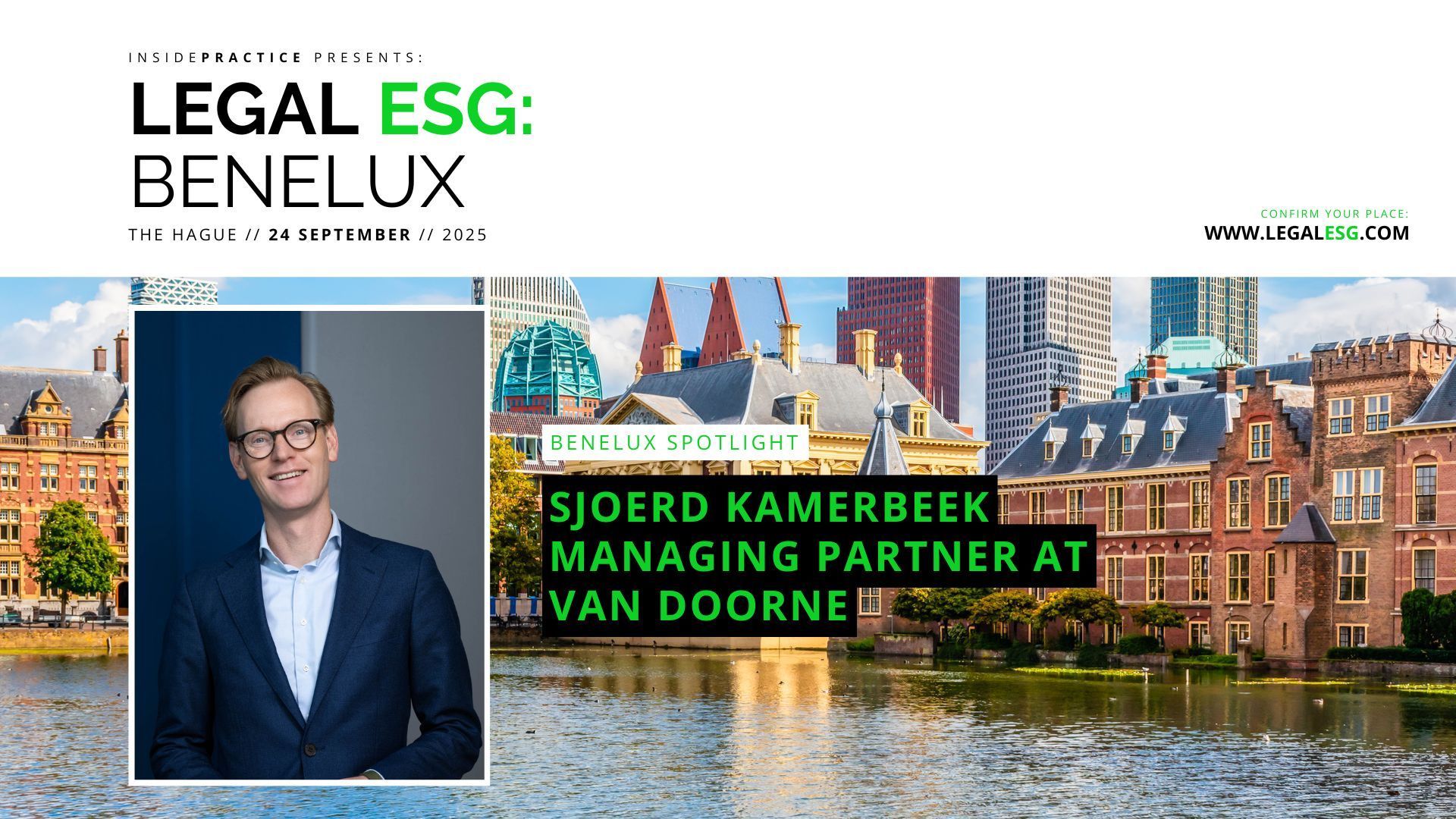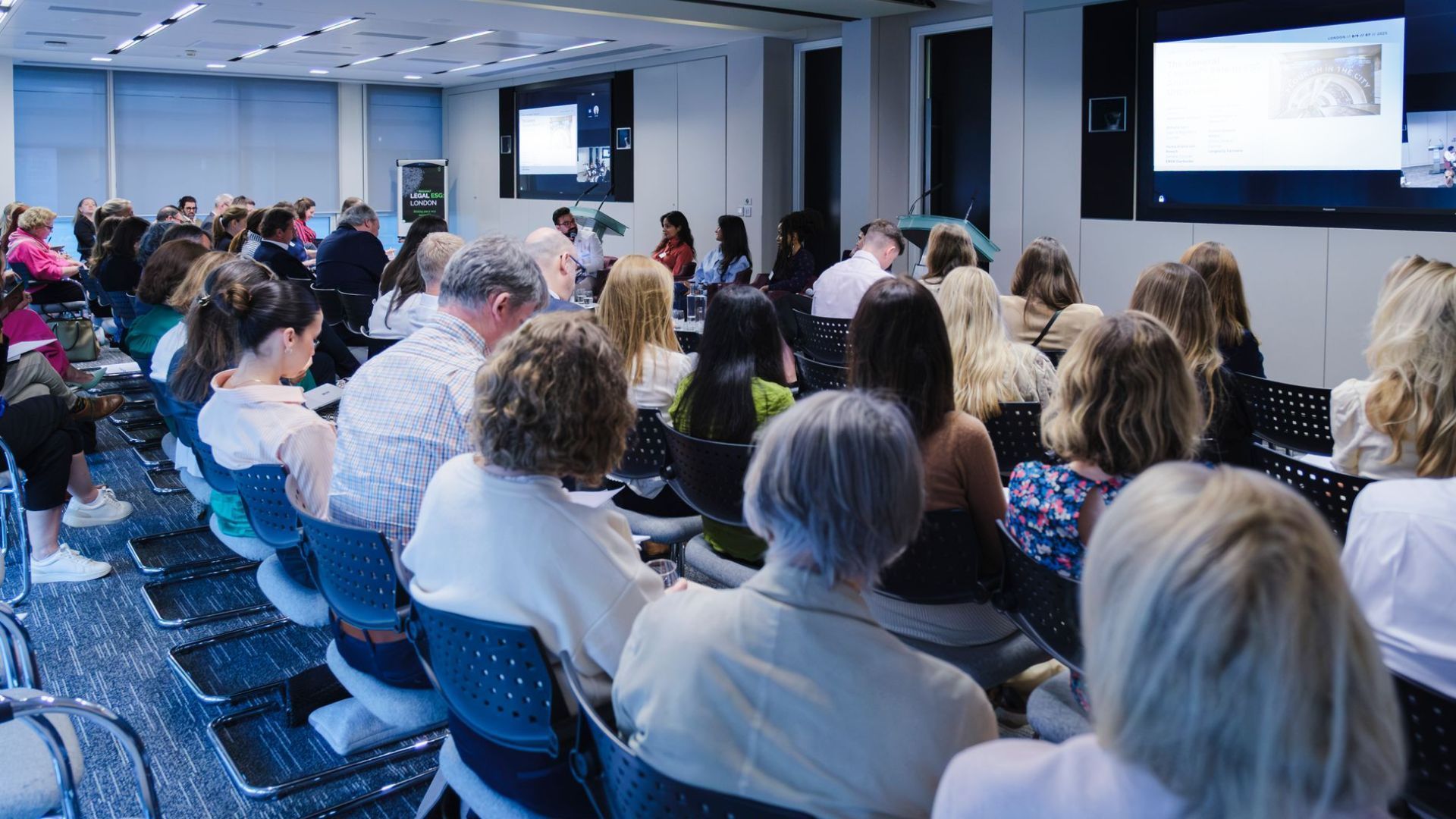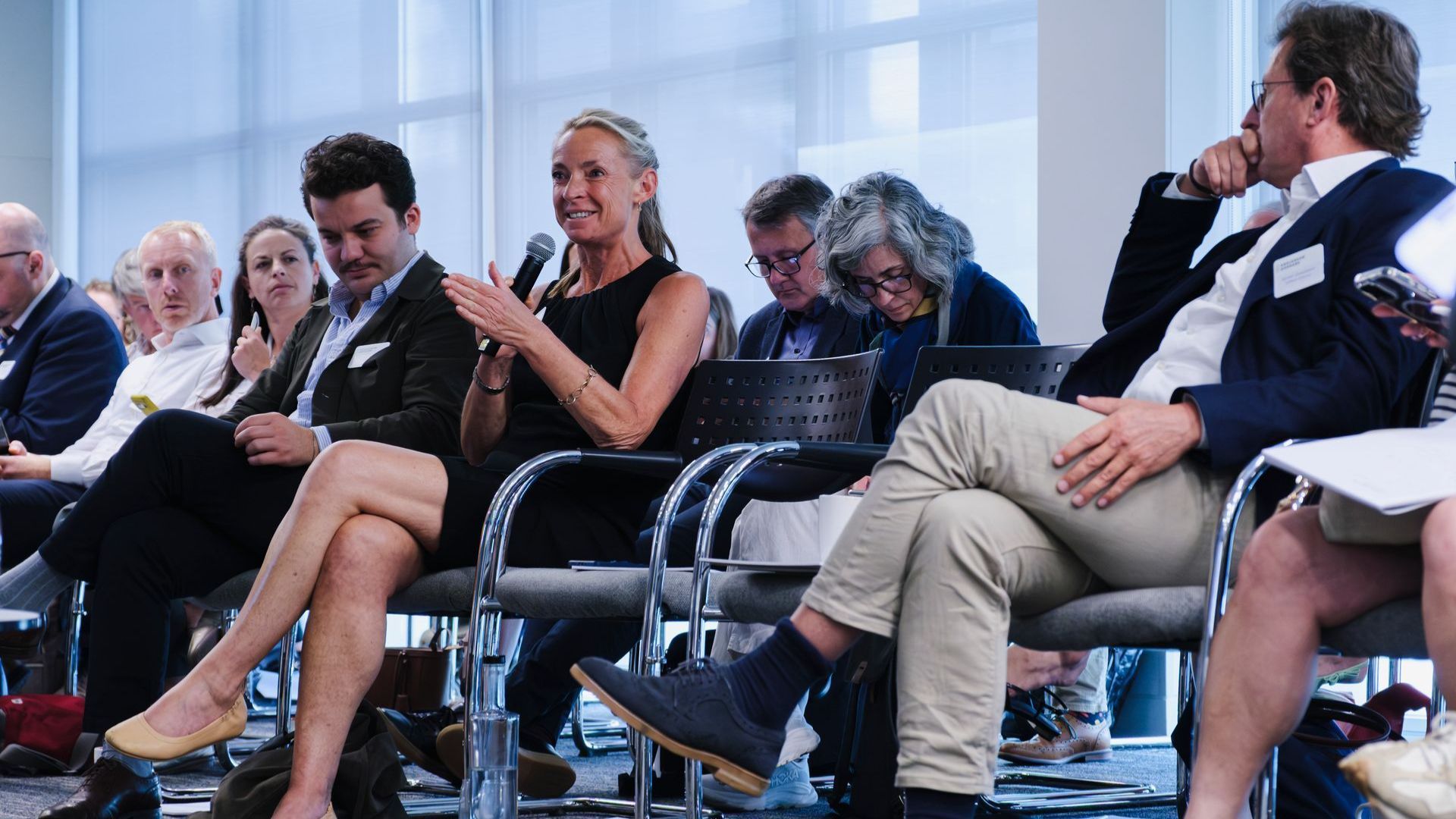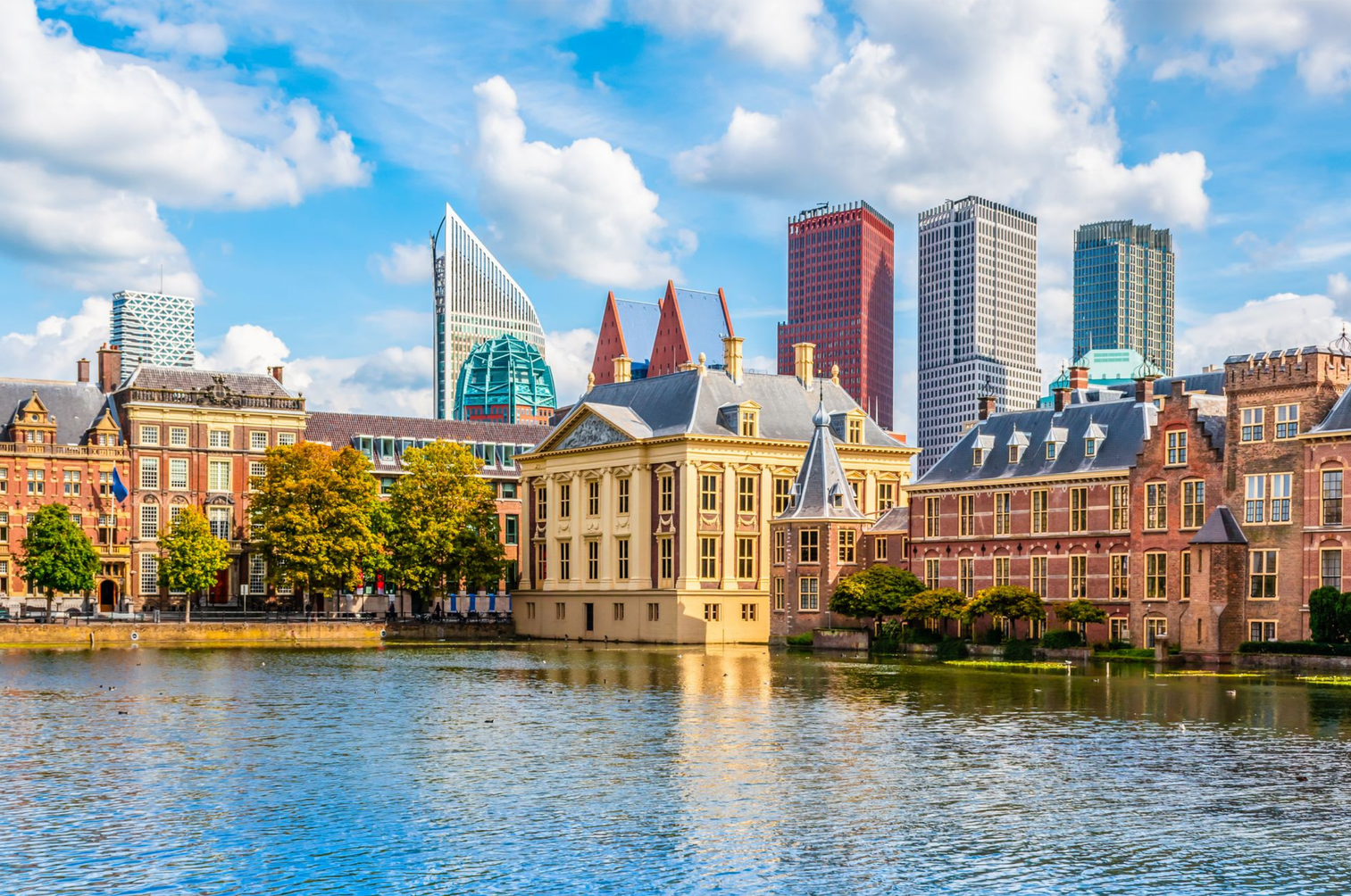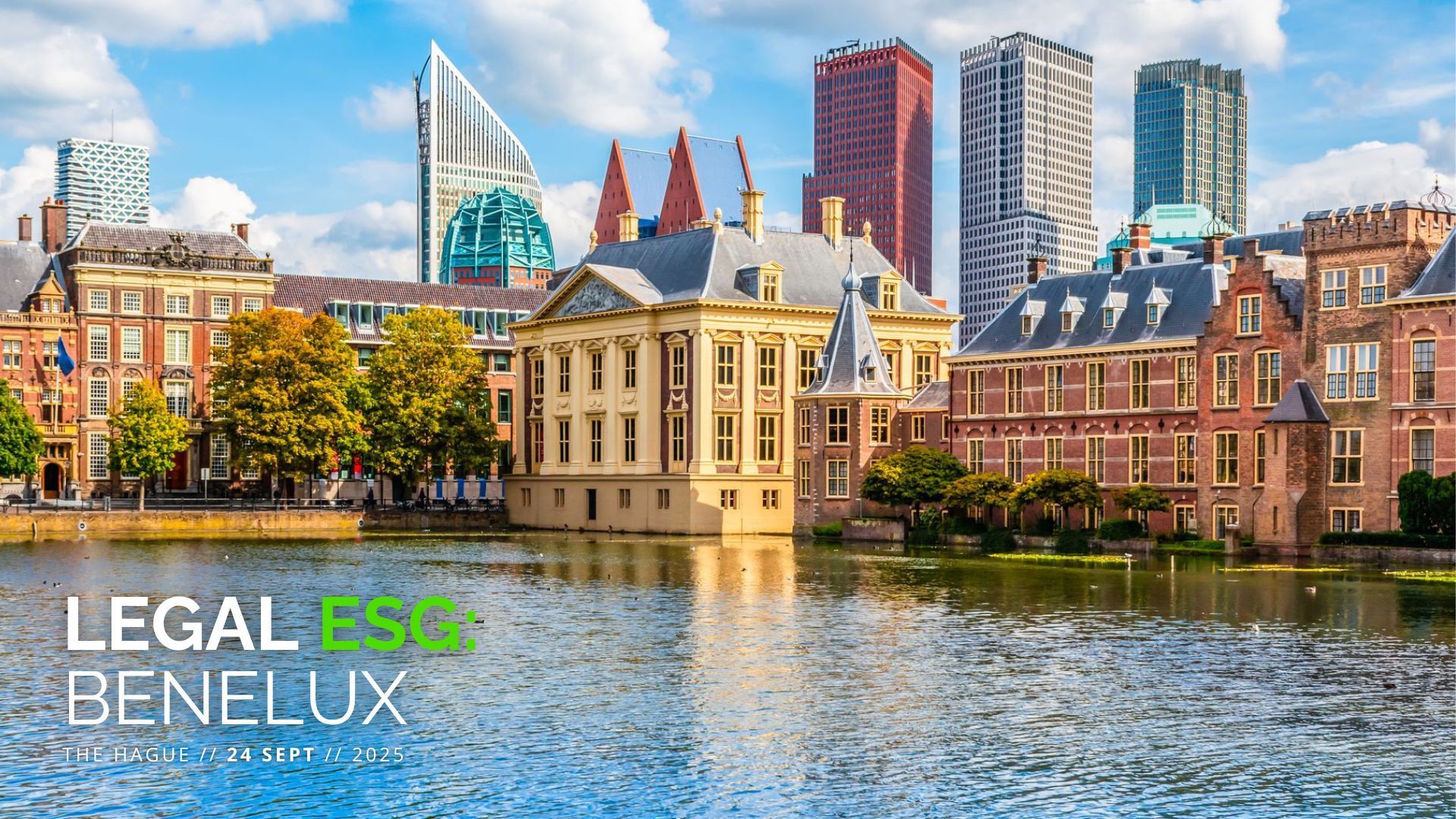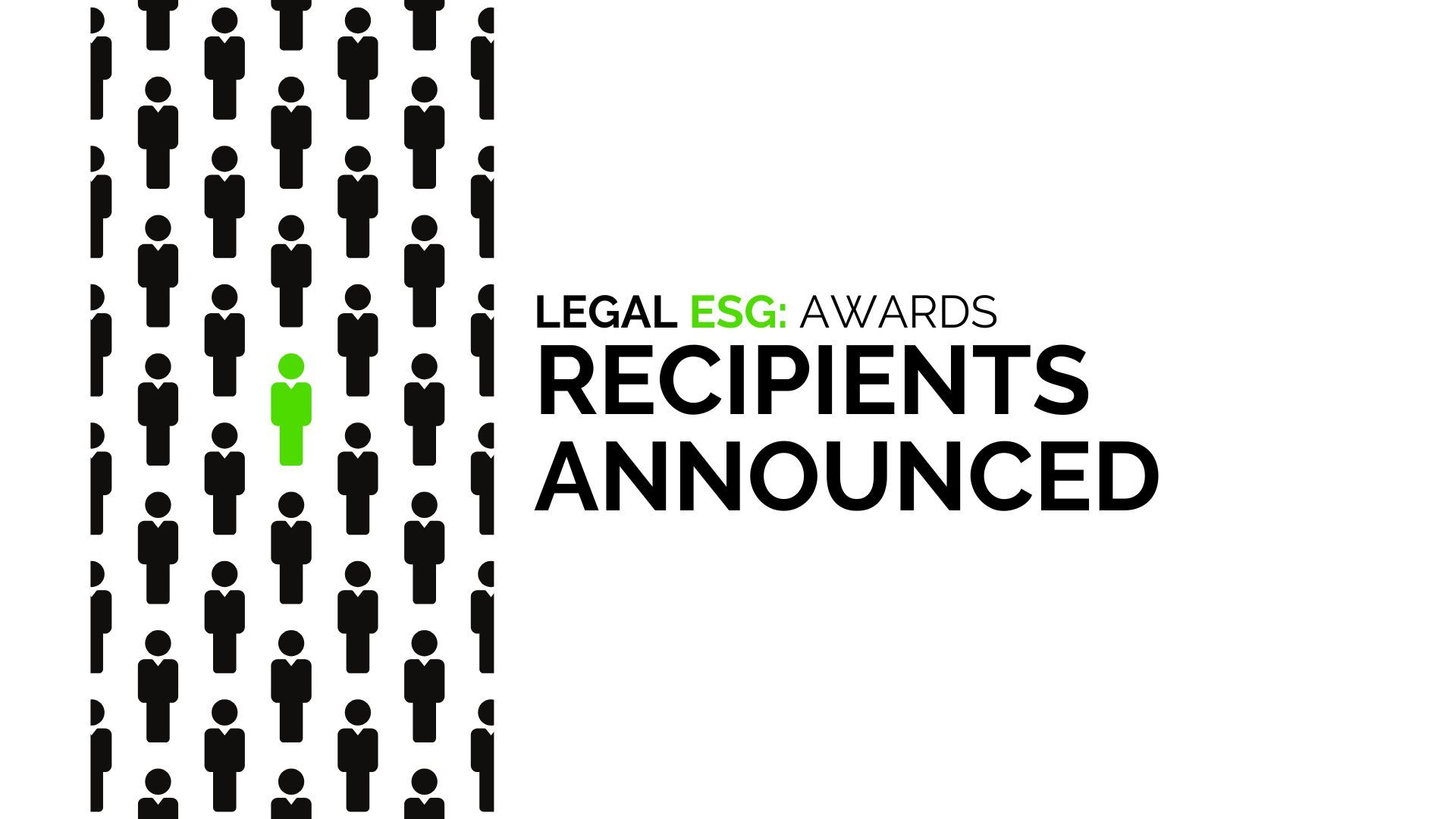Trump 2.0 and Its Global Implications
In a wide-ranging and sobering keynote at Legal ESG: London, Bennett Freeman—Associate Fellow at Chatham House and former U.S. Deputy Assistant Secretary of State for Democracy, Human Rights and Labor—offered a stark diagnosis of the crises converging at the intersection of law, business, and global governance.
Titled “Trump 2.0 and Its Global Implications,” Freeman’s address painted a picture of escalating threats to democracy, accountability, and sustainability—from Washington to Brussels, from ESG portfolios to the pillars of international law.
“I’ve never practiced law, but I’ve lived in its shadow.”
- Bennett Freeman
Freeman opened with candor and wit, acknowledging that “I don’t have a law degree but I’ve been accused of practicing law without a license my whole career.” Still, with two history degrees and a deep engagement with corporate responsibility, governance, and human rights, Freeman has long operated in legal-adjacent spheres—particularly during his tenure as senior executive at Calvert Investments and diplomat at the U.S. State Department.
It’s from this hybrid vantage point—part policy insider, part ESG pioneer—that he delivered a three-part message:
- The rule of law in the United States is under existential threat.
- The international legal order is being steadily eroded.
- The ESG agenda, while flawed, is too essential to abandon.
The Rule of Law: Under Siege in the United States
Freeman's gravest concern was the current state of U.S. democracy, which he argued is deteriorating at an alarming rate. He cited Judge Michael Luttig, a conservative Republican and former federal appellate judge, who recently warned in The Atlantic that the return of Donald Trump to office constitutes “an existential threat to the rule of law in America.”
Freeman didn’t mince words in detailing what that threat looks like in practice:
- A politicized judiciary granting expanded presidential immunity
- Mass firings of nonpartisan civil servants
- ICE deportations on questionable legal grounds
- Crackdowns on speech and academic freedom
- Government intimidation of major law firms and universities
Yet, amidst the erosion, he noted acts of principled resistance:
- Law firms standing firm under political pressure
- The American Bar Association and Brennan Center filing suit
- Microsoft quietly severing ties with firms that capitulated
- Young associates resigning from compromised firms on ethical grounds
Freeman called on the legal community to see these as signs—not just of crisis—but of responsibility: “The legal profession must be a firewall against authoritarianism.”
The Global Rule of Law: Foundations Shaking
Zooming out, Freeman addressed what he described as the slow collapse of the post-WWII international legal order.
Referencing a recent Guardian article titled “Are We Witnessing the Death of International Law?”, he described a landscape marked by:
- Autocrats acting with impunity
- Attacks on independent judiciaries
- Emergency laws used to suppress minority rights
- Human rights defenders imprisoned or exiled
He brought a human face to this crisis by recalling a visit to Gaza in 1999, where he spent a day with renowned Palestinian human rights advocate lawyer Raji Sourani. Today, Sourani’s house has been destroyed—but his words resonate louder than ever: “The rule of law is not just a concept. It’s the blood and pain of real people.”
Upcoming ESG Event: Legal ESG: Benelux
Freeman is currently working with a small group of lawyers and academics to encourage formation of a new international rule of law coalition. He urged the International Bar Association and International Chamber of Commerce: coordinate and bring the business and legal worlds into active defense of international standards and norms.
The ESG Backlash: Political, Predictable—and Still Salvageable
The third pillar of Freeman’s talk addressed the political backlash against ESG, especially in the U.S., where it has been co-opted as a wedge issue by conservatives and cast as “woke capitalism.”
Drawing on his role as SVP for Sustainability Research and Policy at Calvert Investments from 2006–2015, he noted that ESG’s rapid rise almost guaranteed a counter-reaction. “We’re still fighting the aftermath of the American Civil War of the 1860s and the civil rights movement of the 1960s,” he quipped, “so of course we’re fighting the culture war around ESG.”
But Freeman was refreshingly honest about the ESG sector’s own missteps:
- Poor and inconsistent metrics
- Funds with misleading labels
- Weak screening that allowed unethical companies into ESG portfolios
Still, he firmly rejected attempts to strip ESG of its normative heart. He criticized voices suggesting ESG be reframed only as risk management, asking pointedly, “So human rights isn’t about values? The climate crisis isn’t about values? You’ve got to be kidding.”
Instead, he advocated a “militant pragmatism”—supporting both value-based and risk-based ESG approaches depending on the audience. “If asset managers want to talk about risk instead of ethics, fine. Just don’t throw out the E, the S, and the G.”
ESG in a Converging World: Toward Integration, Not Abandonment
Freeman concluded by urging ESG professionals and legal leaders to think holistically. Citing a lecture he gave at Johns Hopkins SAIS Bologna in 2023, he described a new convergence of pressures: geopolitical upheaval, ethical concerns, material business risks, and emerging technologies like AI.
He praised recent investor frameworks (like Bernstein’s “ESD”—Emerging, Strategic, and Disruptive factors) that attempt to account for this complexity without abandoning ESG’s core purpose.
The goal, Freeman argued, is not to discard or downgrade ESG but to integrate its elements more strategically and pragmatically. “These issues will not go away. The expectations on companies, the obligations on investors, and the pressure from civil society will not vanish.”
Upcoming ESG Event: Legal ESG: Europe
A Call to the Legal Community
Freeman’s closing remarks were clear and direct:
On the U.S. side of the Atlantic, he said, ESG jobs may not be secure in the short term. But in Europe, there is still time—and momentum—to lead. “All is not lost,” he concluded. “But if lawyers, investors, and civil society don’t rise to meet this moment, much could be.”
As the Legal ESG: London event continued into workshops and panels, Freeman’s keynote set a powerful tone: one that framed the challenge ahead not simply as a legal or political crisis, but as a test of principle—for institutions, for industries, and for individuals.
The Legal Profession is at a Crossroads
The combined pressures of market disruption, tightening budgets, combined with the transformative and disruptive power of AI are reshaping how legal professionals learn, connect, and lead.
Traditional conferences and content - slow, siloed, and top-down - no longer meet the moment - the future belongs to faster, more networked, and more peer-driven ways of exchanging knowledge.
Our response - a private, always-on space for real discussion
Start Your 3-Day Free Trial - Free for Inside Practice conference attendees.
INSIGHTS:


